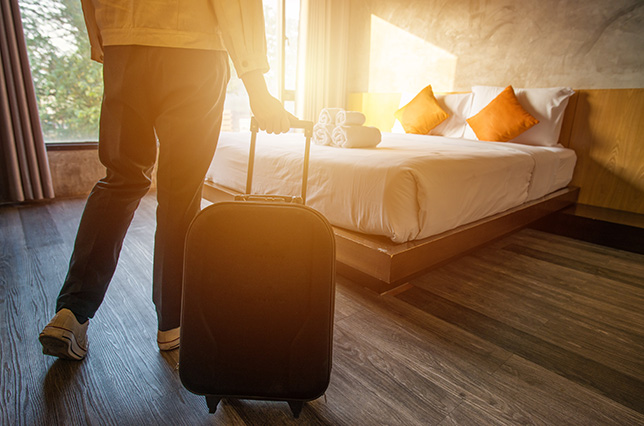You’ve just returned from what feels like your first vacation in forever. Maybe it was the trip of a lifetime. Maybe it was a weekend escape. Either way, chances are you found some time to get away this summer – and probably for the first time in almost 18 months.
Regardless of the destination, you may be feeling a persistent sense of sadness or uneasiness. Post-vacation depression or post-vacation blues are real and occur in up to 57% of travelers. The juxtaposition between the joy and excitement experienced on vacation compared to the hum drum monotony of every day life can exacerbate these feelings of sadness. Symptoms include fatigue, loss of appetite, feelings of nostalgia, disappointment and boredom. Jet lag in addition to an abrupt return to normalcy may exacerbate the post-vacation blues.
Psychologists are very aware that anxiety and depressive symptoms can worsen when returning from vacation. Here are three recommendations we make when helping our patients re-adjust to their every day life:
Plan a transition period
It is tempting to plan a vacation that maximizes a defined break from work or school, but research suggests that a transition period is important in minimizing post-vacation depression. When possible, plan a few days between returning from a trip and getting back to work or school. You will have time to unpack, do laundry, and take care of anything unexpected that has happened since you were gone. In addition, this transitional period will help you shift your mindset to what you need to do in the week ahead and a return to work or school will not seem so abrupt.
Prioritize healthy behaviors
While on vacation, it’s normal to indulge. Late nights, increasing alcohol intake, and veering off course when it comes to diet all seem like good decisions when on vacation. The problem is that these behaviors can develop into bad habits that transition with us when we return home. Develop a plan that targets healthy behaviors such as sleep, healthy eating, and exercise that begin as soon as you get home. Prioritizing your physical health as soon as you return will have a positive impact on your mental health.
Share with others and make plans
Post your vacation photos on social media. Talk to friends about your trip. Offer to help plan a vacation for a work colleague. And start dreaming about your next get away. All of these things can help keep your mindset positive. Ask key questions when reminiscing about your trip. Consider: What did you really like about the vacation? What made you feel joyful? Think about if there are ways to replicate those experiences in your weekly routine.
Returning home after a vacation can feel like a let-down. But the post-vacation blues can be mitigated with a little planning, self-care, and reflection.

